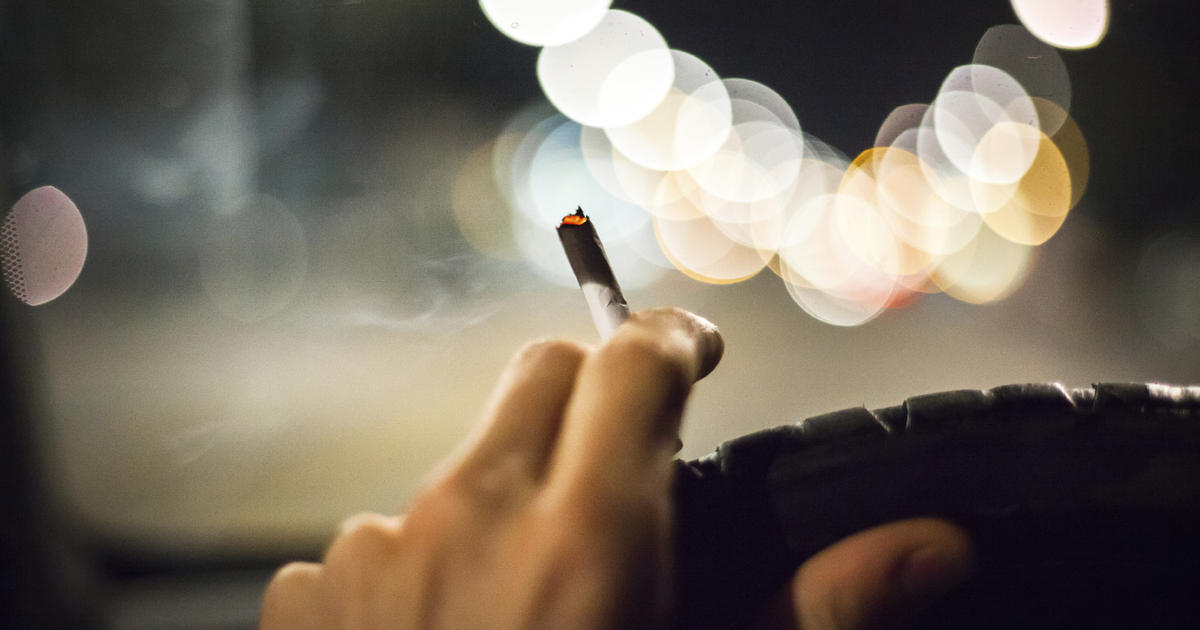The Risk of Pot-Impaired Drivers
Now that marijuana will be legal in Canada, there is a whole other discussion going on now:
The risk of pot-impaired drivers in Canada.
What is the risk of drivers under the influence of weed?
This April 20th was a true celebration in Canada as people wait for the legalization of marijuana later this year.
Some are celebrating but others are asking a serious question regarding the danger that marijuana can pose on the road.
A new study shows that traffic accidents increase on 4/20, this study co-authored by Dr. Donald Redelmeier, suggest that in the United States, deadly traffic accidents are higher on this “holiday” than drunk drivers accidents on Sunday Bowl Sundays.
As Bill C-45 lumbers through the Senate, a new debate has started about accompanying this Bill with a set of penalties and procedures for people driving under the influence of marijuana.
Two sides of the Marijuana & Driving discussion
The arguments about this proposed Criminal Code amendment have become heated between the leaders of the two prominent advocacy groups.
For one side, MADD Canada Head Andrew Murie and for the other, John Conroy, president of the National Organization for the Reform of Marijuana Laws; both have said that the other part just did not understand.
“The thing is, he’s full of crap,” says Murie.
Murie’s group has led a campaign against impaired driving for decades, he insists that the main marijuana law will doubtlessly end up putting more Canadians behind the wheel right after smoking.
DUI enforcement for marijuana in Canada
The possible future bill will allow police to own and deploy “spit kits”, or oral fluid testers, next to the already known breathalyzers, all across the country.
These testers can screen not only for THC but also for methamphetamine and cocaine.
The law will also have to make clear the level in which THC becomes a danger for the driver, similar to the 0.08 blood alcohol limit for drunk driving.
In the case of drugs, according to Murie, the levels have been set high to avoid the possible lawsuits that will question the veracity of the tester.
For THC, the level is 25 nanograms in oral fluid, for meth and cocaine, it is 50 nanograms.
Murie explained that if set at five nanograms for THC, the reliability of the tester could drop from 98% to 91%, so by setting the level higher, not only could they catch the most impaired people, but there is also practically no chance of the device failing.
The tester won’t have the last word, it would only deliver a pass or fail verdict and if the persons fail, more screens will be done at the closest police station or clinic.
After this comes the legal ramifications, 2 nanograms of THC in the blood represents a summary conviction and 5 a criminal offense similar to that of alcohol, current drunk driving penalties include one-year driving suspensions and $1,000 fine with possible long license losses or even jail time.
Of course, there is also the possibility of the driver having a combination of THC and alcohol in their blood. The provision for that would be 0.05 of alcohol and 2.5 nanograms of THC.
Current enforcement of driving while high
The Toronto police are the only ones in Canada that have tried using these spit kits. The only other way to test for cannabis impairment on roadsides is by asking the driver to do different tasks like standing on one foot.
After testing these devices the Toronto, police charged 69 people for “drug-driving” in 2017.
Spokesperson Clint Stibbe says that there are only a few hundred officers trained to perform the two types of roadside sobriety tests.
Only less than 1,000 charges for drug impairments are laid each year in Canada. Not much if you compare it to the 50,000 drunk-driving charges.
Murie claims that this legislation is the most comprehensive we’ve seen in the last year and that right now people can just drive impaired by cannabis without fear of being caught.
The impact marijuana will have on accidents
Don Redelmeier, professor of medicine at the University of Toronto, says studies suggest that the upcoming marijuana legalization in Canada will potentially increase life-threatening traffic accidents.
Redelmeier thinks that people high on pot are significantly dangerous on the road. He practices at Toronto’s Sunnybrook Health Sciences Centre, the province’s largest trauma unit, and claims to have seen too many cases of these kinds of accidents.
His research on 4/20 shows an increase of 12% of traffic accidents on this day after 4:20 p.m. and although 12% doesn’t seem much compared to the 36% increase on July 4th, Redelmeier explains that American Independence Day is celebrated by every American but 4/20 is only celebrated by less than 10% of Americans.
So if 4/20 was celebrated as much as July 4th, traffic deaths will increase by 200%.
Redelmeier says that the best science to find out the true risks of driving high on marijuana comes from driving simulator tests, which show in general twice as much accident risks.
Another side of the discussion
John Conroy, a lawyer, and president of a marijuana advocacy group thinks a new fight is coming over drugged-driving laws.
He fears the risk of people being found guilty when they are really not impaired.
He explains that veteran dope smokers are able to drive normally at the THC levels prescribed by the bill, but he does think that novice and intermittent users doing it can be cause for concern.
There is also the case of medical users, who generally have elevated THC levels most of the time, these people generate huge tolerance to the THC.
Murie says Conroy is concentrating too much on the law’s THC blood levels and not on the roadside limit, which he says would definitely show that the person is “grossly impaired”, but other toxicology experts don’t agree with Murie and think that 25 nanograms would not impair veteran consumers.
Conroy agrees that breathalyzers and RIDE programs have helped prevent drunk-driving accidents but he insists that in a new free-for-all marijuana country, education is the key.
“I think education and a lot of it and a lot of publicity in terms of it is the way to go.”

